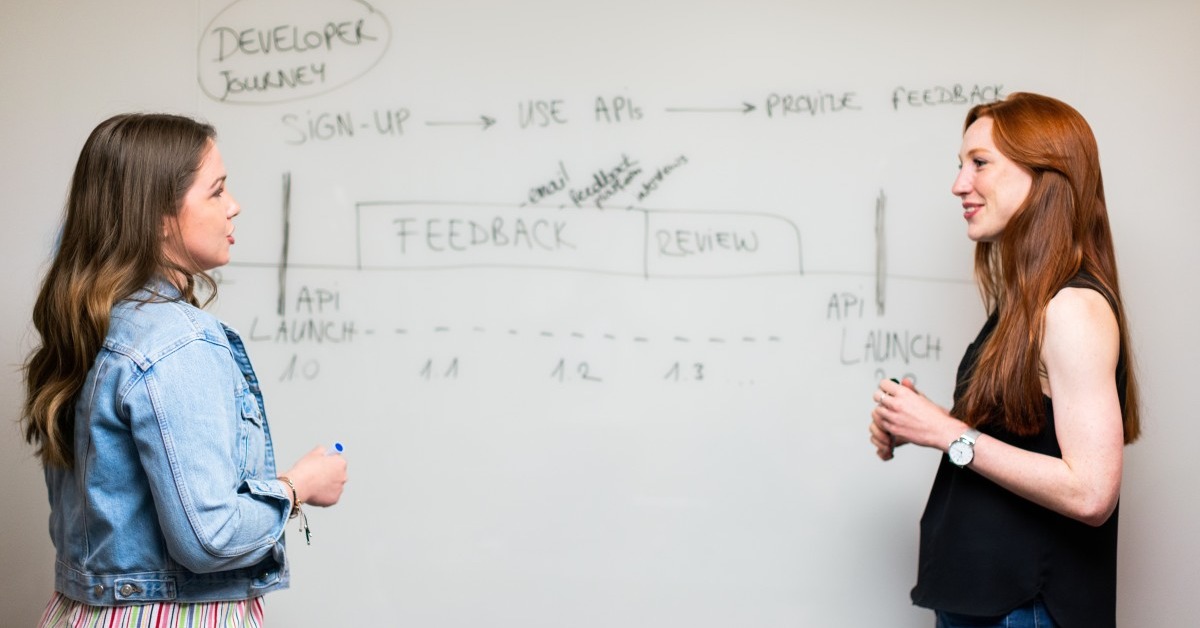
Prenatal and Pediatric Genetic Counseling: An Overview
Genetic counseling is a career that combines science and sensitivity,especially [...]

Unsurprisingly, the educational requirement for teaching a third-grade class is a little more stringent than “pass the third grade yourself, then you’re good to go!” If you want to lead an early childhood, elementary, or secondary school classroom, you will need to earn a teaching license. One way to start that process—one that many teachers choose because it offers a quick route to teacher licensure—is to earn a bachelor’s degree in education.
If you’re a high school student thinking about a career in teaching, or an associate-degree student planning your career, or pretty much anyone without a bachelor’s degree who would like to become a teacher, earning a bachelor’s in education could be your best next step. Read on to learn how. In this article, we’ll cover:
You’ve earned your high school diploma or associate’s degree, and you know you want to explore bachelor degree programs in teacher education. However, you aren’t quite sure which path is right for you. Possible fields and career paths for someone with a bachelor’s degree in education include classroom teaching, tutoring, leading corporate and organizational trainings, and working with youth groups and other youth-oriented organizations.
Earning a bachelor’s degree is a great launching pad for school teachers and school counselors alike (although in the case of counseling, it’s only a starting point; nearly every state requires counselors to hold a master’s degree). If you are interested in becoming a school teacher, there are a few steps to earning a credential post-baccalaureate common across the United States:
Many states offer an initial/provisional teaching license to teachers with a bachelor’s degree in education. Some states require no further academic degrees to renew that license (typically after five years). Many, however, require teachers to earn a master’s degree prior to license renewal; in some states, this requirement applies to some, but not all, teachers. The requirements vary from state to state, so you need to check your home state’s regulations to ascertain what is required of you. Nearly half of all public school teachers hold a master’s degree.
According to the Bureau of Labor Statistics, the 2018 median pay per year for school teachers at the kindergarten and elementary school level was $57,980; at the middle school level, $58,600; and at the high school level, $60,320. Having a bachelor’s degree plus extra college units, such as those earned in completing your credential qualifications or eventually earning a graduate degree, improves pay rates.
| University and Program Name | Learn More |
|
New York University:
Master of Arts in Teaching
|
|
|
Merrimack College:
Master of Education in Teacher Education
|
The prerequisites for a bachelor’s degree in teacher education program are the same as for any four-year baccalaureate degree. You need to earn adequate grades in a college-preparatory high-school curriculum. In addition, many, but not all, undergraduate institutions require standardized test scores; the SAT and ACT are the most popular. Many schools that require the SAT require SAT subject test scores as well. Most schools also ask for letters of recommendation and a personal statement or admissions essay.
If you have earned—or are earning—an associate degree at a community college, you should be able to transfer to a four-year institution to complete your bachelor’s in teacher education. Your guidance counselor can ensure that you are taking the right courses to transfer and that you are meeting all your target school’s requirements.
Anyone interested in early childhood education, elementary education or secondary education is well-served by earning a bachelor’s degree in education. Yes, you can earn a bachelor’s in some other subject, and there may be value in doing so—a bachelor’s in English, for example, should make you a better ELA teacher—but be aware that it will likely extend the length of your graduate study. That’s because you’ll be required to take undergraduate education courses you would have taken for a bachelor’s in education before you can start working on your master’s. Your bachelor’s in education can turn a two-year master’s in education into a one-year master’s, saving you both time and money.
Many colleges and universities in the US offer education degrees on-campus, and an increasing number of schools offer the degree online as well. Whether you choose a traditional degree or an online degree depends on how you answer a few crucial questions:
The traditional option is best for those who need camaraderie, structure, and a nearby support network. The online option is best for those who want to earn their degrees while managing other substantial life responsibilities (e.g., work, family). Whichever path you choose, finances will also be a significant consideration. The cost of a teacher preparation program—including tuition, books, fees, room and board, and travel—can be surprisingly high. Teaching is a rewarding profession in many ways, but “financially” is not one of those ways. Teachers—especially new teachers with a bachelor’s but no master’s degree—are not paid well.
Full-time, on-campus students can generally expect to earn their degree in four years. Many programs include a student-teaching practicum, although some require additional study time to complete this essential experience. Part-time programs will, of course, take longer to complete.
Full-time study has the benefits of:
On the downside, full-time study also means:
If you can make it financially, it could be worth the effort to earn a four-year degree on a full-time basis. If you are considering a part-time program, try to find work in education so that you can gain professional experience while earning your degree.
Whether you pursue your bachelor’s degree in education from private or public university, traditional or online programs, there are many financial aid options for future educators.
To earn your bachelor’s degree in education, you must satisfy the requirements set forth by the institution conferring the degree. Typically that involves passing all your classes and completing a curriculum that includes both required and elective courses. You will likely need to complete a student teaching assignment as part of your teacher education program. Some undergraduate programs include teacher certification preparation as part of the degree program, allowing you to graduate with both your degree and your license.
Once you earn your bachelor’s degree in education, you will need to earn your teaching license to teach in a public school. Some private schools prefer or require licensure, but some will hire teachers who have not earned their licenses. As a rule of thumb, private schools do not pay as well as public schools.
If your professional goal is to lead a public-school classroom full of students, you are going to need a bachelor’s degree at the very least; many teachers continue to a master’s. You do not have to earn your bachelor’s in education, but doing so will reduce the amount of work required to earn your master’s later on. And that master’s is important; over a lifetime of teaching, it can lead to an increase in income of over $400,000.
If your passion is for education, a bachelor’s degree in the field is an excellent way to immerse yourself in what you love while preparing for a teaching career. In the process, you’ll be surrounded by like-minded future teachers. You’ll build friendships and support networks that will sustain you throughout your years in the classroom. If all this sounds appealing to you, then yes: you should get a bachelor’s degree in education.
Questions or feedback? Email editor@noodle.com

Genetic counseling is a career that combines science and sensitivity,especially [...]

Getting an MAT or an MEd in Elementary Ed can [...]

If being a cyber security manager is your goal, you [...]

Cryptography involves data security, a high priority in today's tech-dominated [...]

All health data analysts sift and sort data to cull [...]
Categorized as: Teaching, Education & Teaching